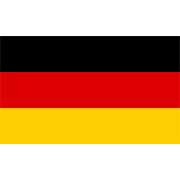Fiscal subject related
According to a report by the German news agency, the total volume of cash payments increased by a significant 20% last year, reaching 12.31 billion euros. The cash back system functions by allowing customers to pay with a card at the checkout and then request a specific amount of cash, which is then added to their bill and deducted from their bank account, as explained by Phoenix magazine. The maximum withdrawal amount is typically capped at 200 euros.
This data was presented by the EHI Market Research Institute. Horst Ruter, the author of the study, highlighted the convenience for customers, stating, "It saves them an additional trip to the ATM. The demand is also increasing due to the decreasing number of ATMs."
Retail companies that offer this service, including food retail chains such as Rewe and Edeka, pharmacies like DM and Rossmann, and some hardware and tool stores, have found it financially beneficial. Research indicates that these retailers return more than 13% of the earned money to their customers.
However, with the growing frequency of this cash access method, there is an increase in the fees that companies must pay to banks. EHI data shows that these fees range from 0.1% to 0.2% of the transaction amount. Consequently, retail entities paid a total of 17.23 million euros last year in fees, marking a 25.7% increase from 2022.
This trend not only demonstrates the evolving landscape of consumer payment preferences but also highlights the shifting dynamics in retail financial transactions in Germany.
Other news from Germany
Germany Publishes Its Electronic Business Address (GEBA)
 Germany
Author: Ivana Picajkić
Germany
Author: Ivana Picajkić
Germany has introduced the German Electronic Business Address (GEBA), published on 18 December 2025 by XStandards Einkauf, as a standardized electronic identifier to accurately route e-documents—especially e-invoices—within networks like Peppol. While GEBA is voluntary, it enhances interoperability, clarity of sender/receiver identification, and readiness for future digital tax and reporting frame... Read more



Germany: Businesses Must Prepare for E-Invoicing Earlier Than Expected
 Germany
Author: Ivana Picajkić
Germany
Author: Ivana Picajkić
Although mandatory B2B e-invoicing in Germany will only apply from 2027, businesses have been allowed to use e-invoices voluntarily since January 2025 and adoption is accelerating as 2026 approaches. As more suppliers switch early, companies operating in Germany already need to be technically ready to receive structured e-invoices to avoid compliance and operational disruptions. Although mandatory... Read more



Germany: Court Confirms Tax Authorities Can Request Tax-Relevant Emails During Audits
 Germany
Author: Ivana Picajkić
Germany
Author: Ivana Picajkić
German tax authorities are increasingly requesting tax-relevant emails during audits, and a 2025 Federal Fiscal Court ruling confirmed that such emails must be retained and disclosed when they contain relevant commercial or tax information. Read more
Subscribe to get access to the latest news, documents, webinars and educations.
Already subscriber? Login


Germany and France Update their Common E-Invoicing Standard
Germany and France will jointly update their hybrid e-invoice formats ZUGFeRD and Factur-X on 15 January 2026 to align with EN 16931 and support their upcoming B2B e-invoicing mandates. The new version expands technical capabilities, improves interoperability, and ensures full compatibility between both formats as Europe prepares for unified digital reporting under ViDA Germany and France have ann... Read more



Germany Lowers VAT on Food in Restaurants to 7% from 2026
 Germany
Author: Ivana Picajkić
Germany
Author: Ivana Picajkić
The German government has approved the Tax Amendment Act 2025. Starting January 1, 2026, the VAT rate for all food served in restaurants will be reduced to 7%. This change will support restaurants, cafés, bakeries, butchers, and catering businesses What changes on January 1, 2026? Food eaten on-site in restaurants will drop from 19% to 7% VAT. This creates a uniform 7% VAT rate for: din... Read more



German 2025-2028 TSE Replacement: Steps for POS Providers and Retailers
 Germany
Author: Ivana Picajkić
Germany
Author: Ivana Picajkić
Germany’s TSE replacement will unfold in multi-year waves from 2025 to 2028, because each hardware TSE expires five years after activation rather than on a single nationwide date. This long replacement cycle forces manufacturers, integrators, and retailers to plan strategically—balancing hardware swaps, cloud-TSE migrations, and clear communication to manage staggered deadlines and complex install... Read more



New document was uploaded: S4FiscalBackoffice Patch
S4F backoffice patch is intended for users who have already installed S4F backoffice and are intended to update existing installations to latest version. To do so apply only patches that are marked with version number that is newer than your currently installed instance of backoffice. Please make sure to install all available patches sequentially (without skipping). This package contains instruction, release notes, changelog and software packages required for deployment of this software component. Read more
Subscribe to get access to the latest news, documents, webinars and educations.
Already subscriber? Login

